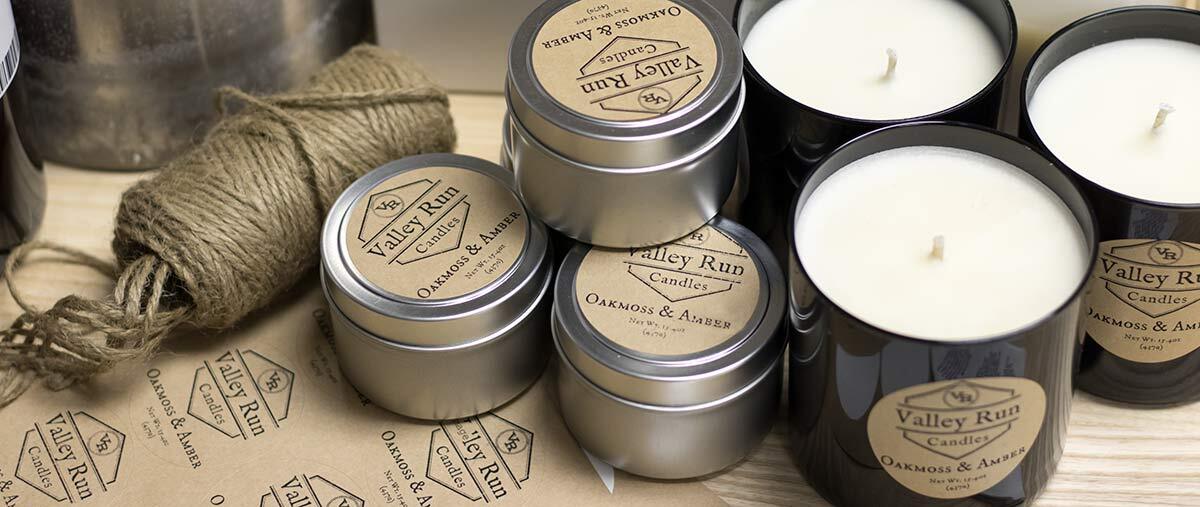Insurance for candle makers An overview of insurance options for your business and how to tell when you need coverage.

Starting and growing a candle business involves many moving parts and making numerous decisions. From designing your line and determining cost of goods, to figuring out sales channels and marketing, it’s a lot!
One aspect that often isn’t thought about until later in the business journey? Insurance.
However, insurance ultimately becomes top of mind for many makers because they want to protect their investments, business, and peace of mind.
We frequently receive questions about insurance, so this article is here to help if you’ve wondered whether you should have insurance for your business and how to get started.
What is the role of insurance?
Insurance offers essential financial protections against unexpected events. Like with health, home, and auto insurance, business insurance can cover costs arising from accidents, theft, damage, and lawsuits, which might otherwise be unaffordable to pay for out of pocket.
Insurance is also a tool for mitigating risk and shielding against liabilities. Candles require fire to function, which creates an inherent potential danger despite proper burn testing and safety labeling. And since customers use candles in their homes, this adds an additional level of risk.
Having the right insurance provides candle makers protection from possible liabilities and financial losses related to fire or other accidents involving their products.
When should candle makers consider insurance?
While there isn’t a clear-cut answer to this question, deciding whether to carry insurance is a deeply personal decision that involves weighing your tolerance for risk and considering how insurance fits into your budget.
You might decide insurance isn’t for you if you make candles as a hobby and mostly give them as gifts, as opposed to selling them. Or perhaps you do sell your scented creations, but only a very limited number each year. If your annual candle sales are less than the cost of a yearly insurance premium, you might determine paying for insurance doesn’t make financial sense in that particular situation.
On the other hand, you could realize that your appetite for risk is low and the thought of selling candles without insurance leaves you nervous. In that case, you may prefer to have the security that comes with insurance, no matter the cost or how many candles you sell.
Another situation where insurance is an easy yes? Makers who rely on their small business for a portion, or all, of their income.
If you have an at-home business, there’s a good chance your homeowners insurance policy doesn’t cover it. Check with your insurance provider to understand the extent of coverage, if any. You may have the option to add a rider to your homeowners policy—otherwise, separate candle business insurance is the best route for proper coverage.

Types of business insurance for candle makers
If you’ve decided you want insurance for your business, there are several options. This section will help you understand some of the choices and purpose of each insurance type.
NOTE: The following options are geared to solopreneurs who do not have a team or employees. Having employees can require workers compensation insurance, unemployment insurance, and disability insurance, which aren’t covered in the scope of this article. Since employment insurance laws vary from state to state, speaking with a licensed insurance broker is your best bet to learn exactly what coverage your business needs for employees.
General liability insurance
General liability insurance covers a wide variety of claims. It protects you from financial losses related to bodily injury sustained on your business premises, property damage, medical expenses, medical bills, copyright infringement, customer injuries, and more. This is the most basic type of business insurance.
Product liability insurance
Designed especially for product-based businesses, product liability insurance offers coverage against losses as a result of a defective product that causes third-party bodily injury or property damage.
Business property insurance
Also called commercial property insurance, this insurance safeguards tangible small business assets like equipment, raw materials, supplies, and finished inventory, and can protect a business’s real estate as well. It covers losses due to damage, theft, and vandalism. Consigned candles and products are usually covered, too.
Business interruption insurance
If your business experiences an unexpected closure, business interruption insurance can compensate you for lost income during the closure, as well as pay for business expenses like rent and utilities. Business interruption insurance often works in tandem with business property insurance to cover both physical and financial losses.
Commercial auto insurance
Most makers with small businesses use their personal vehicle for activities like picking up supplies, delivering local orders, and transporting products and equipment to in-person events. This creates a gray area for insurance coverage because personal auto insurance may not cover the value of damaged products for your business.
However, if your business owns a vehicle, commercial auto insurance is needed to cover potential product and equipment losses associated with a vehicle incident.
It’s very common for organizers of farmers markets, craft shows, and pop-ups to require vendors to carry insurance. General liability insurance often extends coverage for events, so there’s no need to purchase additional insurance! If you don’t have general liability coverage, ACT Insurance offers candle makers insurance designed especially for events.

How to find the right insurance
With a better understanding of the types of insurance available, the next steps are to determine your needs, shop around, and compare quotes.
At this point, the main question to ask yourself is: which combination of these insurance types gives me the coverage I want and need?
Once you have a general sense of the coverage you need, speaking with an insurance provider will move you in the right direction. If you already work with an insurance agent, they can be an excellent starting resource and a sounding board for your questions.
Otherwise, there are several options for insurance providers, some of which are specifically for candle makers and handmade businesses. Please note the following providers are suggestions, not endorsements:
- The Handcrafted Soap & Cosmetic Guild*
- Indie Business Network*
- The Hartford Small Business
- Next Insurance
- Insureon
* offers insurance options through membership in the organization
Insurance providers of all stripes are able to give you a free quote. Be sure to closely review the policy details to understand the coverage limits, what is and isn’t covered, as well as the overall cost. Never hesitate to ask questions or get clarification!
Final thoughts
Having insurance can safeguard your business against various risks, including product liability, property damage, and potential legal issues. For instance, if one of your candles caused a fire or injury, having liability insurance can help cover legal fees and settlements, ensuring that one incident doesn’t devastate your business financially. Additionally, property insurance can protect your workspace and inventory from unexpected events like fires, theft, or natural disasters.
It's essential to assess your specific needs and consult with an insurance professional to ensure you have adequate coverage. While it is an additional expense, the protection insurance provides can be invaluable, allowing you to do business with greater confidence and comfort.
More business resources

Creating your first candle product line

How to price your candles

Where to sell your candles

7 social media content ideas for your small product-based business

Time-saving tips, tools, and strategies for candle makers & candle businesses
